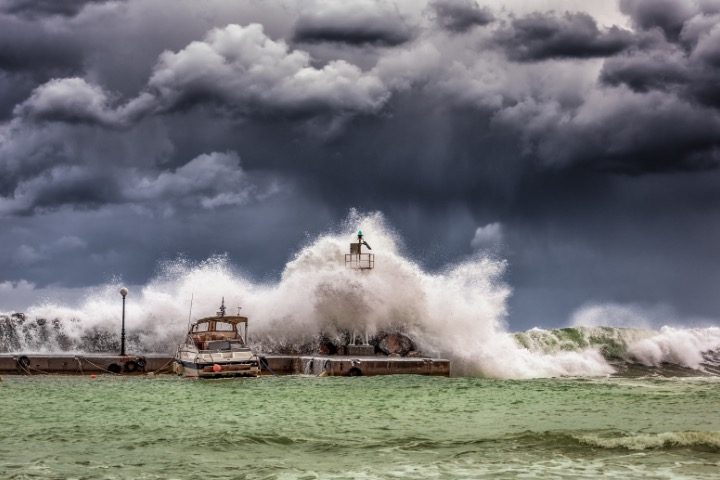
A study published earlier this month by researchers from Caltech and Cambridge University attempted to ascertain just why many Americans refuse to trust “the science” surrounding so-called climate change, which used to be called global warming. Authors R. Michael Alvarez and Daniel Ebanks from Caltech, along with Ramit Debnath from Cambridge, attempted to explain why a stubborn section of Americans simply refuse to accept the “fact” that we’re in a climate emergency.
The researchers believe that a large part of the “problem” is political in nature, and that many Americans have lost faith in university researchers, to be truthful. The study‘s abstract appears to deny that the issue of climate change should even be questioned anymore.
“Scientists have developed a strong consensus that Earth’s climate is changing and that human activities play an important role in these changes,” the researchers claim. “However, current research shows that in the United States, there is significant partisan polarization on climate change and its causes, leading to climate denialism.”
How terrible. “Denialism,” you say?
“Our results confirm that segments of the American electorate do not believe climate change is a problem for the United States and that climate change is not a consequence of human activities,” the study states. “But we also show that part of the problem regarding climate denialism is a lack of trust in university research.”
If we would only “trust” climate researchers and the politicians who wish to completely destroy our society by doing away with the fossil fuels that have powered the world and have kept us comfortable for so long.
The researchers argue for a new way of communicating “the science” to the public so that “trust” in academia may be restored.
“First, more research must be done to understand who trusts or distrusts university research on climate change and who is persuadable. Second, more research is needed on climate communication framing and messaging,” the researchers said. “Third, additional research on appropriate messaging is necessary. Finally, we need to develop a culture of trust in climate research and how it is communicated across society.”
In other words, exactly how the climate propaganda is disseminated must be improved. And the “bad actors” when it comes to climate information must be dealt with — somehow.
“This lack of trust in higher education and evidence-based research makes the public more vulnerable to opinion-based arguments from powerful actors who disproportionately profit from climate denialism,” Debnath said.
The authors argue that the scourge of climate denialism must be overcome if any meaningful action is to be taken to address climate change.
“If voters don’t believe in the proven outcomes of fundamental research, then how can politicians make the changes we need in the next decade to stop climate change? Debnath asked.
Apparently, some climate scientists have threatened a moratorium on climate change research — a climate science strike, of sorts — as a means to reinvigorate the relationship between science and society.
“Climate change science is settled to the point of global consensus,” a similar study from 2021 exhorts. “We have fulfilled our responsibility to provide robust knowledge. We now need to stop research in those areas where we are simply documenting global warming and maladaptation, and focus instead on exposing and renegotiating the broken science-society contract.”
From their mouth to God’s ears….
Instead of a climate science strike, this study argues for climate scientists to make themselves more available to the public so that they can make us plebeians understand the significant danger that climate change represents.
“If science wants to move the dial on the climate crisis, then we need to get out of our ivory towers and make regaining the public’s trust a key mission for every university,” Debnath concluded.
At Watts Up With That?, Charles Rotter summed up the study’s spurious conclusions.
“The cult of expertocrasy that has consumed academia in the last couple of decades is truly a destructive and totalitarian cult. These researchers are so ensconced in their belief in consensus ‘science’ that they appear to be incapable of any kind of objective research,” he noted.
One thing the study’s researchers fail to take into account is the fact that many Americans simply have strong malarkey detectors. They see the world around them and intuitively understand that weather has always occurred and that the climate is, more or less, in a constant state of flux. Some years are hotter than others, some are wetter than others — this is the way the world has operated since day one. While humans may play a small role in some of that change, it’s not a role that requires a massive overhaul of society as we know it.
Absent a puerile belief in climate change malarkey, climate science cannot hope to stem the rising tide of “climate denialism.”




